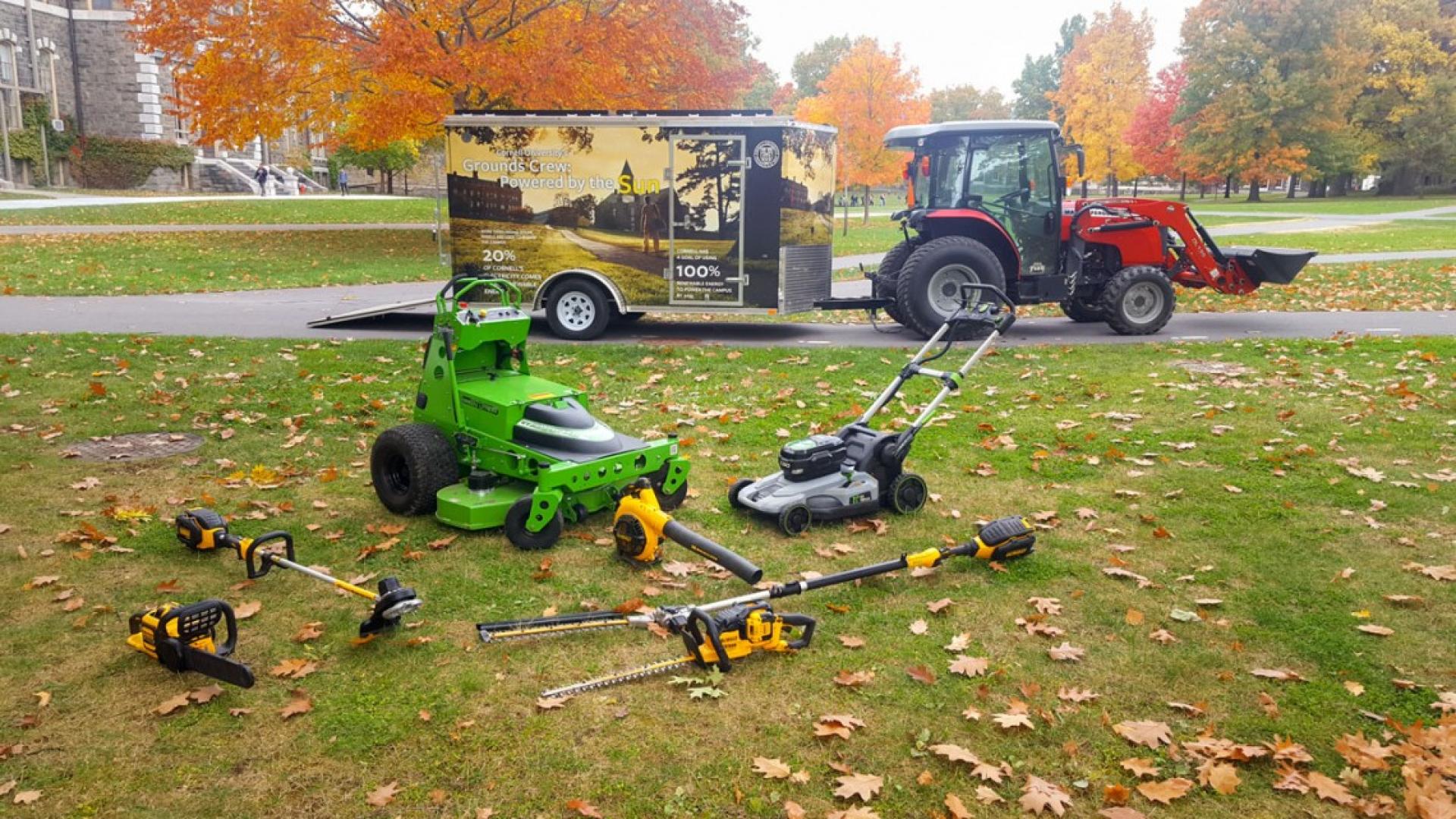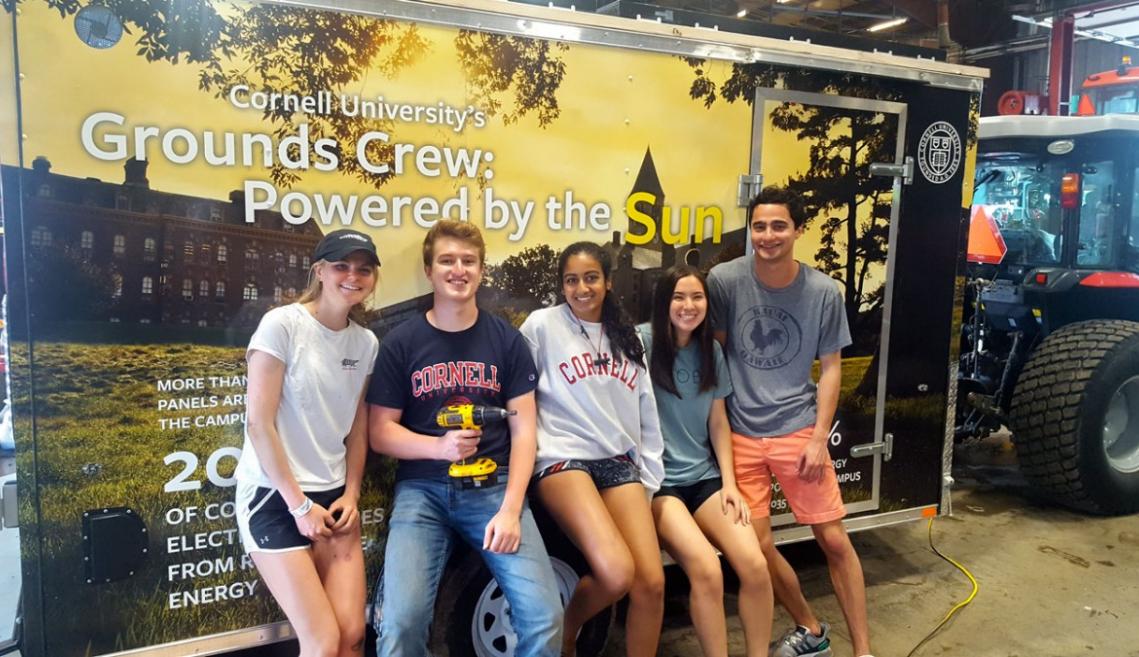Members of the Cornell University Sustainable Design (CUSD) student group have delivered to the Grounds Department a 7-by-12 foot trailer that will cart and energize electric string trimmers, hedge clippers, chainsaws and an electric heavy-duty commercial mower.
Designed and created by CUSD’s Solarize team, the trailer will help Cornell reduce carbon emissions while raising awareness of Cornell’s environmental initiatives, aimed at helping the campus achieve carbon neutrality by 2035, said Dan Schied, director of the Grounds Department.
Said Adam Poluka ’19, the Solarize team’s first project director: “It’s a humble trailer with a lot of good engineering in it.”
Four solar panels on the trailer’s roof can generate 1,151 kilowatt hours of electricity over the course of a year – enough energy to power a 60-watt lightbulb for 19,187 hours or 2.2 years, said Dan Pyrek ’20, the team’s second project director.
“If all the energy is used every day, that is roughly equal to 33 gallons of gasoline or diesel,” Pyrek said.
“Using solar energy as a sustainable power source in the trailer offsets annually about 660 pounds of emitted carbon dioxide of gasoline or diesel fuel.”






